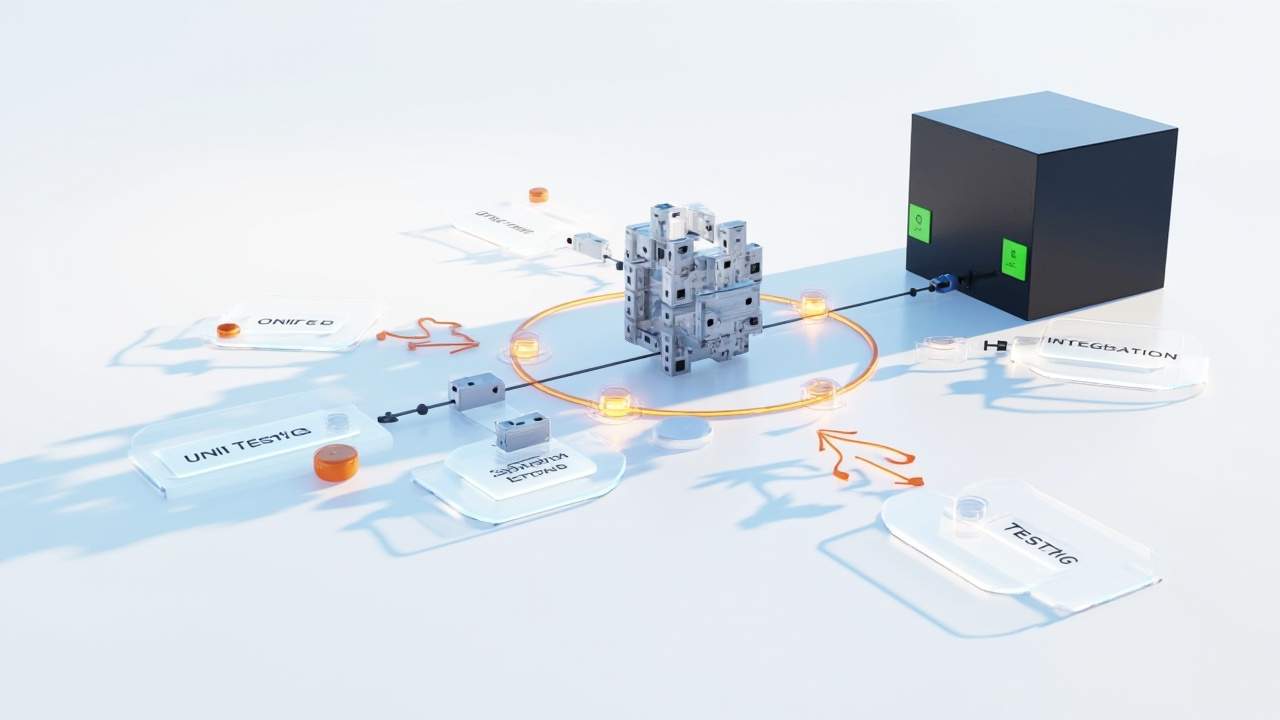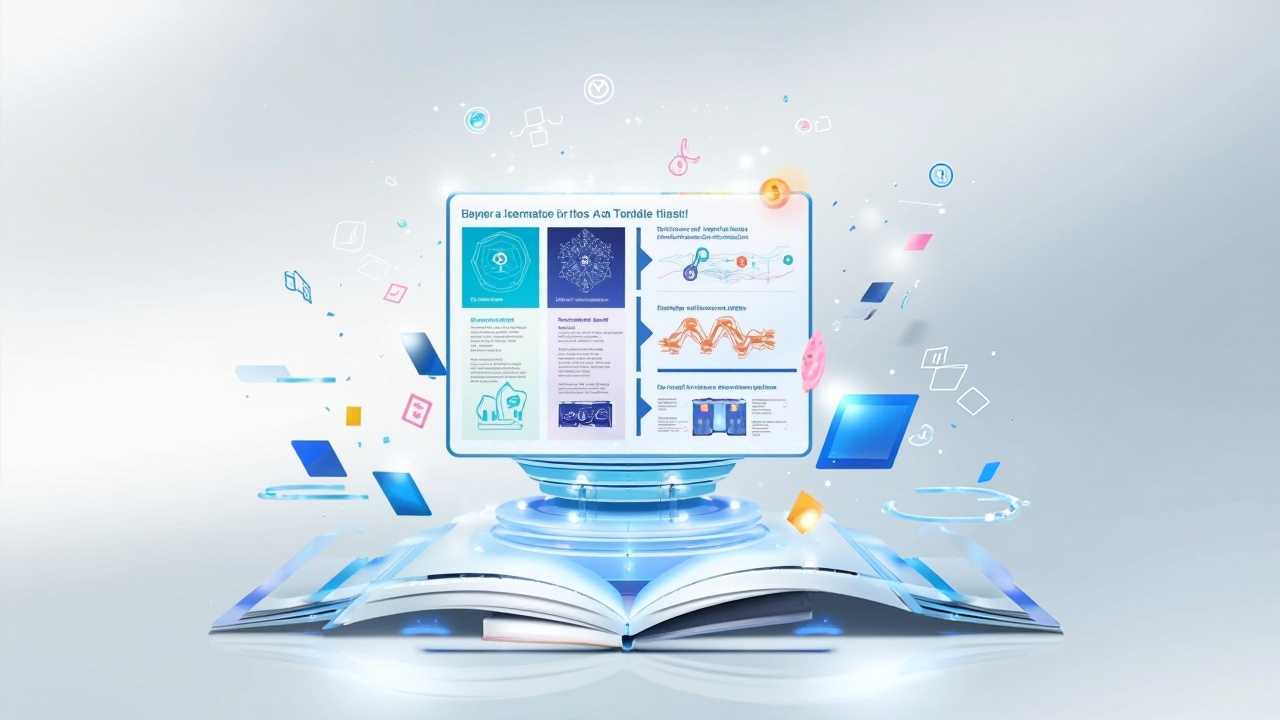In the rapidly evolving world of technology, Artificial Intelligence (AI) stands at the forefront, revolutionizing industries and reshaping the way we live and work. Yet, with great power comes great responsibility, and the need for effective AI testing has never been more critical. As AI systems become increasingly integrated into our daily lives, ensuring their reliability, safety, and fairness is paramount. But how do we ensure these complex systems perform as expected? This comprehensive exploration into AI testing aims to demystify the process, highlight the challenges, and showcase the innovative solutions being developed to test AI systems effectively.
The journey into AI testing is not just a technical endeavor; it’s a quest to build trust in a technology that promises to transform everything from healthcare to finance. As AI applications grow, so do the stakes, and the potential consequences of AI failures can be significant. This blog post will delve into the multifaceted world of AI testing, offering insights into the methodologies, challenges, and future directions. Whether you’re a tech enthusiast, a developer, or a business leader, understanding AI testing is crucial to harnessing AI’s full potential.
By the end of this article, you will have a deeper appreciation for the complexities of AI testing and the innovative approaches being used to navigate this new frontier. We’ll explore the different types of AI testing, the challenges unique to AI systems, and the emerging trends that are shaping the future of AI testing. So, buckle up as we embark on this enlightening journey into the world of AI testing.
Understanding the Foundations of AI Testing

The first step in unraveling the complexities of AI testing is understanding its foundations. AI testing is a multifaceted process that involves verifying and validating AI models to ensure they perform as intended in real-world scenarios. Unlike traditional software testing, AI testing requires a nuanced approach due to the inherent unpredictability and adaptability of AI systems.
The Core Principles of AI Testing
At its core, AI testing is grounded in several key principles: accuracy, reliability, robustness, and fairness. These principles guide the testing process and help ensure that AI systems deliver consistent and unbiased results. Accuracy involves verifying that AI predictions align with expected outcomes, while reliability focuses on the system’s ability to maintain performance over time and under various conditions. Robustness tests the system’s resilience to adversarial inputs and unexpected scenarios, and fairness ensures that AI systems do not perpetuate biases or discrimination.
The Role of Data in AI Testing
Data is the lifeblood of AI, and its quality directly impacts the efficacy of AI testing. High-quality, representative datasets are crucial for training AI models and evaluating their performance. Testing data must be diverse and comprehensive to capture the full spectrum of potential inputs the AI system may encounter. Additionally, maintaining data privacy and security is paramount, as AI systems often process sensitive information.
The Challenges of Testing AI Systems
Testing AI systems presents unique challenges that differ from traditional software testing. AI models are often opaque, making it difficult to interpret their decision-making processes. This “black box” nature complicates the identification and correction of errors. Moreover, the dynamic and adaptive nature of AI systems means they can evolve over time, necessitating continuous testing and monitoring to ensure consistent performance.
“AI testing is not just about finding bugs; it’s about ensuring trust in AI systems.”
These foundational elements set the stage for exploring more advanced topics in AI testing. In the following sections, we’ll delve deeper into specific testing methodologies, the challenges that arise, and the innovations driving the field forward.
Methodologies in AI Testing: From Unit Tests to Black-Box Testing

AI testing encompasses a variety of methodologies, each suited for different aspects of AI systems. These methodologies range from traditional unit testing to more advanced techniques like black-box testing, each playing a critical role in ensuring the integrity and performance of AI models.
Unit Testing: The Building Blocks of AI Testing
Unit testing serves as the foundation for AI testing, focusing on individual components of the AI system. This method involves testing small, isolated parts of the AI model to ensure they function correctly. By breaking down the AI system into manageable units, developers can identify and fix errors early in the development process, reducing the risk of system-wide failures.
Integration Testing: Ensuring Cohesion
Once individual components are tested, integration testing examines how these units work together within the AI system. This methodology is crucial for identifying issues that arise from the interaction of different components, ensuring that the AI system operates cohesively as a whole.
Black-Box Testing: Probing the Unknown
Black-box testing is particularly valuable in AI testing due to AI’s inherent complexity. This method involves testing the AI system’s functionality without knowledge of its internal workings, focusing on the inputs and outputs. Black-box testing is instrumental in evaluating the AI system’s behavior and ensuring it meets user requirements.
“In AI testing, understanding the system’s output is as crucial as understanding its internal workings.”
Exploratory Testing: Embracing Uncertainty
Exploratory testing is an adaptive approach that leverages the tester’s intuition and experience. This methodology is essential for AI systems due to their dynamic nature, allowing testers to explore unanticipated scenarios and identify potential vulnerabilities.
These methodologies provide a comprehensive framework for testing AI systems, each addressing different aspects of AI functionality. As we progress, we’ll explore the specific challenges AI testing faces and the innovative solutions being developed to address them.
Navigating the Challenges Unique to AI Testing

AI testing presents distinct challenges that differ from traditional software testing, stemming from the complex nature of AI models and their applications. These challenges require innovative solutions and a deep understanding of AI systems to ensure they are robust, reliable, and fair.
The Black-Box Nature of AI Models
One of the most significant challenges in AI testing is the “black-box” nature of AI models. Unlike traditional software, where the code and logic are transparent, AI models are often opaque, making it difficult to understand how they reach their conclusions. This lack of transparency complicates the identification and correction of errors, as testers cannot easily trace the source of unexpected behavior.
Bias and Fairness Concerns
AI systems are only as good as the data they are trained on, and biased data can lead to biased outcomes. Ensuring fairness in AI systems is a critical aspect of AI testing, requiring testers to identify and mitigate biases that may result in discriminatory behavior. This challenge is particularly pressing in applications like hiring, lending, and law enforcement, where biased AI decisions can have significant real-world consequences.
Adversarial Attacks and Robustness
AI systems are vulnerable to adversarial attacks, where malicious inputs are designed to trick the AI into making incorrect predictions. Testing for robustness against such attacks is crucial to ensure AI systems can withstand adversarial scenarios and continue to function correctly.
“The greatest challenge in AI testing is not just finding errors, but ensuring AI systems are fair and resilient.”
Addressing these challenges requires innovative testing approaches and a commitment to ethical AI development. In the next section, we’ll explore the emerging trends and technologies that are transforming AI testing.
Emerging Trends in AI Testing: Shaping the Future

The field of AI testing is rapidly evolving, driven by advancements in technology and a growing understanding of AI systems. Emerging trends are reshaping how AI testing is conducted, offering new tools and methodologies to address the unique challenges of AI systems.
Automated Testing and Machine Learning
Automation is revolutionizing AI testing, with machine learning algorithms being used to automate the testing process. These algorithms can identify patterns and anomalies in AI system behavior, enabling more efficient and effective testing. Automated testing reduces the time and effort required for manual testing, allowing testers to focus on more complex and high-level tasks.
Explainable AI: Enhancing Transparency
Explainable AI (XAI) is an emerging trend aimed at addressing the black-box nature of AI models. XAI techniques provide insights into how AI systems make decisions, enhancing transparency and trust. By making AI models more interpretable, XAI facilitates more effective testing and debugging, allowing testers to understand and address errors more efficiently.
Ethical AI: A Focus on Fairness and Accountability
As AI systems become more pervasive, there is an increasing focus on ethical AI development. Testing methodologies are being developed to ensure AI systems are fair, accountable, and transparent. This trend is shaping AI testing by prioritizing the identification and mitigation of biases, ensuring AI systems operate ethically and responsibly.
“The future of AI testing lies in automation, transparency, and ethical development.”
These emerging trends are transforming AI testing, providing new tools and methodologies to navigate the challenges of AI systems. In the following section, we’ll explore practical applications and case studies that highlight the impact of effective AI testing.
Practical Applications and Case Studies in AI Testing

To truly understand the impact of AI testing, it’s essential to explore its practical applications and examine real-world case studies. These examples highlight the importance of effective AI testing and demonstrate the innovative solutions being employed to ensure AI systems perform as expected.
AI Testing in Healthcare: Ensuring Accuracy and Safety
In healthcare, AI systems are used for diagnostics, treatment recommendations, and patient monitoring. Ensuring the accuracy and safety of these systems is paramount, as errors can have severe consequences. Rigorous testing methodologies are employed to validate AI models, ensuring they provide reliable and accurate results.
A notable case study is the use of AI in radiology, where AI systems assist in interpreting medical images. Extensive testing is conducted to ensure AI models can accurately identify anomalies and assist radiologists in making informed decisions. This testing includes validation against large datasets and real-world scenarios to ensure the AI system’s reliability.
Financial Services: Mitigating Risk with AI Testing
In the financial sector, AI systems are used for fraud detection, credit scoring, and investment analysis. Effective AI testing is crucial to mitigate risks and ensure these systems operate fairly and accurately. Testing methodologies focus on identifying and addressing biases in AI models, ensuring they provide equitable outcomes for all users.
A case study in this domain involves AI-based credit scoring systems, where testing is conducted to ensure the system does not discriminate against certain demographics. This involves analyzing the AI model’s decision-making process and validating its performance across diverse datasets.
Autonomous Vehicles: Testing for Safety and Reliability
Autonomous vehicles rely heavily on AI systems for navigation and decision-making. Testing these systems is critical to ensure the safety and reliability of autonomous vehicles. Rigorous testing methodologies are employed to validate AI models under a wide range of driving conditions and scenarios.
A case study in autonomous vehicle testing involves the use of simulation environments to test AI systems’ performance under various conditions, such as inclement weather and heavy traffic. These simulations help identify potential vulnerabilities and improve the system’s robustness.
“Real-world applications of AI testing highlight its importance in ensuring safety, reliability, and fairness.”
These practical applications and case studies underscore the critical role of AI testing in ensuring the success and safety of AI systems. As we conclude this exploration, we’ll summarize the key takeaways and highlight the importance of continued innovation in AI testing.
Conclusion: The Future of AI Testing and Its Impact on Society

As we stand on the cusp of a technological revolution, the importance of AI testing cannot be overstated. AI systems are poised to transform every aspect of our lives, from healthcare and finance to transportation and beyond. Ensuring these systems operate safely, reliably, and fairly is essential to realizing their full potential and building trust in AI technology.
AI testing is a complex and evolving field, with unique challenges and opportunities. From addressing the black-box nature of AI models to mitigating biases and ensuring robustness against adversarial attacks, AI testing requires innovative approaches and a commitment to ethical development. Emerging trends such as automated testing, explainable AI, and ethical AI development are shaping the future of AI testing, offering new tools and methodologies to navigate these challenges.
The practical applications and case studies highlighted in this article demonstrate the critical role of AI testing in ensuring the success and safety of AI systems. As AI continues to advance, the need for effective testing will only grow, making it a vital component of AI development.
“The future of AI testing is bright, with endless possibilities for innovation and impact.”
In conclusion, AI testing is not just a technical endeavor; it’s a journey to build trust in a technology that promises to reshape our world. By embracing innovation and ethical development, we can ensure AI systems deliver on their promise and create a better future for all.
As you explore the fascinating world of AI testing, consider the impact and potential of this technology in your own field. Stay informed, stay curious, and continue to engage with the latest advancements in AI testing.
Explore More on This Topic
Interested in diving deeper into this subject? Connect with experts or explore additional resources to expand your understanding.
If the link above does not work, please visit: https://calendly.com/dm-csimplifyit/30min?month=2025-05